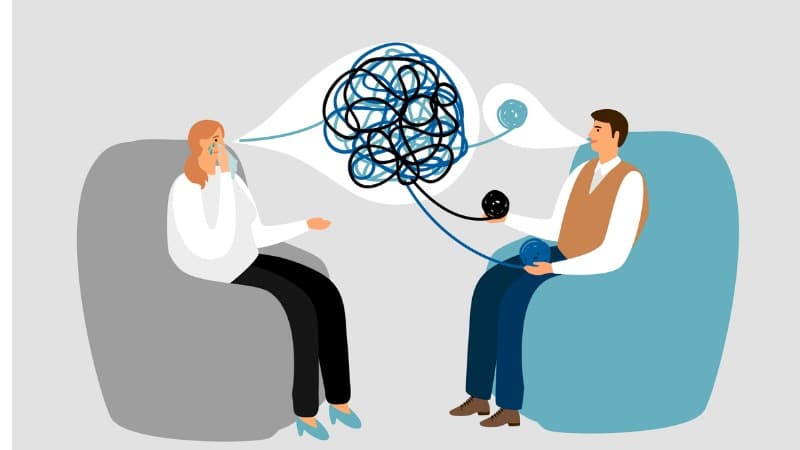Mental health clinicians fill a crucial professional role in modern-day Australia. Trained and skilled in the support and care of members of our community who suffer from mental illness, as our population grows so, too, does the need for clinicians specialised in this field.
An article published by Australian Institute of Health and Welfare shared staggering insights gleaned from government research. An estimated 45% of Australians will experience some form of mental illness throughout their lives. Millions of adults suffer from anxiety, depression, and substance abuse. Almost one in seven children are diagnosed with mental health disorders annually, including Attention Deficit Hyperactivity Disorder Australian Institute of Health and WelfareADHD), anxiety, depression and conduct disorder. Eight suicide-attributable deaths occur each and every day.
The need for appropriate expert care from mental health clinicians is substantial and we are moving in the right direction. The study Estimating treatment rates for mental disorders in Australia found that mental disorder treatment rates are rising within Australia. As the stigma of mental health declines and greater awareness reaches the community, more people are reaching out for help. This leads to better outcomes for patients and greater opportunities for those interested in a career in this field.
Mental health clinicians have the training and expertise required to provide evidence-based care, work within the broader health field, offer hope and treatment to relieve suffering for those with mental illness and to significantly contribute to the psychological wellbeing of patients and our nation.

Mental health clinicians: Professional options
There are a range of options for those who wish to pursue a career in mental health. Your interests, study preferences and current educational status will determine the most suitable pathway.
Counsellor
A counsellor’s work may span many areas or centre on a single niche. Possible roles include relationship support and counselling, life coaching, career advice, overcoming personal challenges or a focus on mental health counselling for those with mental illness. Counsellor’s help clients to work through difficulties, gain insights and find the right direction for their lives.
Most counsellors hold a bachelor degree, postgraduate qualification or advanced diploma.
Clinical psychologist
Clinical psychologists who specialise in mental illness are involved in the assessment, diagnosis and treatment of patients. This may be in a public, private or hospital setting. Clinical psychologists are qualified to develop and deliver treatment plans for simple and complex psychological issues and individually tailored care to each patient.
A range of non-pharmaceutical approaches may be incorporated. These include assisting a patient to better understand their illness, non-psychological advice to aid mental health improvements like how to sleep well, exercise appropriately and eat for improved function, plus psychological interventions like cognitive behavioural therapy (CBT), mindfulness-based cognitive therapy, problem-solving therapy, psychodynamic therapy and talk therapy. The opportunity also exists to be involved in teaching, research and public policy creation.
This profession is highly regulated and clinical psychologists are required to hold Australian Health Practitioner Regulation Agency (AHPRA) registration.
Still interested?
The Australian Psychological Society describes the minimum six-year pathway for entry to this profession: A three-year bachelor degree with a psychology sequence, a fourth-year in an accredited psychological stream, followed by an intern placement or postgraduate qualification.
Mental health nurse
Mental health nurses are specialist registered nurses who concentrate on providing mental health support in communities, non-government organisations and private settings. From crisis to aged care, administering medications to monitoring and reviewing treatment plans, assessing and planning future requirements and goals, providing advice and support and working within a team of other health professionals, those in this highly skilled profession have a pivotal role in lowering mental health stigma, connecting sufferers with the resources they need as well as being at the forefront of therapy as the trusted expert.
Entry into this rewarding career requires a bachelor degree in nursing, followed by an appropriate postgraduate qualification. The ACMHN’s credentialing program recognises practising nurses that possess specialist level qualifications, skills and experience.
As with clinical psychology, nursing is a highly regulated profession that requires AHPRA registration. The opportunity exists for mental health nurses to become credentialed. A Master of Mental Health Nursing is the recommended avenue.
Social worker
A social worker has varied roles that may include client advocacy, crisis response, assisting clients to adapt to change and challenging situations, assessing needs and goals, and offering support. Clinical social workers also provide therapy, develop and update treatment plans and work in conjunction with other health professionals to maximise care and client outcomes.
There are two pathways to a career as a social worker: A bachelor or a Masters of Social Work.
Master of Mental Health
If you have a background and qualifications in nursing, psychology or social work, the Master of Mental Health combines mental illness experience with clinical expertise and extensive academic research. This course has been designed to enable mental health clinicians to advance the depth of their understanding, enhance their therapeutic capabilities and elevate their interpersonal skills. The result is better patient care through an evidence-based and compassionate lens.
The Southern Cross University Master of Mental Health offers a flexible online program that is shift and life-friendly. Study is completed part-time and is composed of six units per year over two years. Because those who study this masters often work in a demanding role or life can raise unexpected surprises, an option exists to skip a study period if other priorities need to take precedence.
Find out more about becoming one of our communities leading mental health clinicians by studying a Master of Mental Health with SCU Online.







